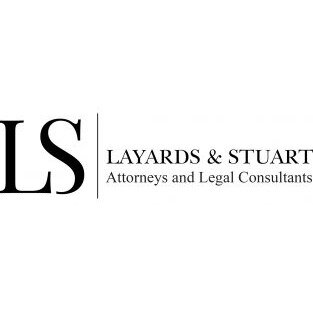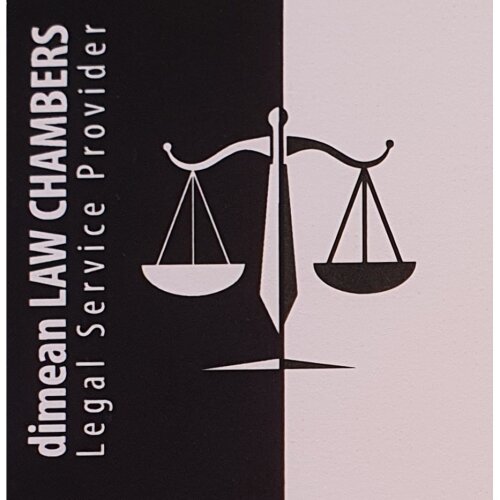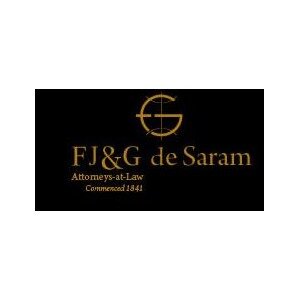Best Pension Lawyers in Sri Lanka
Share your needs with us, get contacted by law firms.
Free. Takes 2 min.
Or refine your search by selecting a city:
List of the best lawyers in Sri Lanka
About Pension Law in Sri Lanka
Pension law in Sri Lanka plays a vital role in providing financial security to retired and elderly persons. The pension system is designed to ensure a steady income for individuals who have retired from active employment, typically within government service or other formal sectors. Sri Lanka's pension system includes government pensions, the Employees Provident Fund (EPF), and the Employees Trust Fund (ETF), each with its own rules and regulations. The government pension scheme is available to public sector employees, while the EPF and ETF cover private sector employees, providing a defined contribution plan for retirement savings.
Why You May Need a Lawyer
Several common scenarios may necessitate legal assistance in pension matters, including:
- Disputes regarding pension eligibility or the calculation of benefits.
- Challenges in accessing pension funds or delays in processing pension payments.
- Legal representation for disputes arising from employment-related pension rights.
- Advice on how best to manage pension funds after retirement, especially if considering alternatives or supplementary investments.
- Guidance for expatriates or individuals with international employment history regarding their pension rights in Sri Lanka.
- Resolution of issues arising from changes in pension-related laws or policies that impact individual rights.
Local Laws Overview
Several key aspects of local laws are pertinent to understanding pensions in Sri Lanka:
- The Public Service Pensions Ordinance governs government pension schemes, detailing eligibility, benefits, and contributions for public servants.
- The Employees Provident Fund Act states the contribution requirements from both employers and employees in the private sector, along with regulations governing withdrawal.
- The Employees Trust Fund Act provides additional benefits to private-sector workers, typically serving as a supplementary retirement fund.
- The regulation and administration of pension funds fall under the purview of government bodies such as the Department of Pensions and the Central Bank of Sri Lanka, ensuring compliance with applicable laws.
Frequently Asked Questions
What is the difference between a government pension and EPF/ETF?
Government pensions are typically for public sector employees after a stipulated period of service, while the EPF and ETF are contributory schemes for private sector employees.
How do I know if I'm eligible for a government pension?
Eligibility is usually based on years of service in a government role and reaching the retirement age specified by the Public Service Pensions Ordinance.
Can I withdraw my EPF before retirement?
Withdrawals before retirement are typically limited to specific situations, such as critical medical needs, unemployment, or permanent migration, and require formal approval.
What happens to my pension if I pass away?
Spouses and dependents might be eligible to receive survivor benefits or a continued pension stream, depending on specific scheme regulations and eligibility.
How are pension benefits calculated?
Calculations depend on factors such as length of service, salary at retirement, and specific provisions of the applicable pension scheme.
Are pension benefits taxable in Sri Lanka?
Pension benefits, generally, are exempt from income tax in Sri Lanka, but consult a tax advisor for detailed information based on personal circumstances.
What should I do if there's a delay in receiving my pension?
Contact the relevant administrative body, such as the Department of Pensions or your pension fund administrator, for assistance and clarification on delays.
Can expatriates access their EPF and ETF contributions?
Yes, expatriates who contributed can access their EPF and ETF upon leaving Sri Lanka permanently, but such claims require specific documentation and formal approval.
How can I increase my retirement benefits?
Consider contributing additional voluntary savings to personal retirement funds or investments, and explore open-market retirement savings options.
Who manages the pension funds I contribute to?
Government bodies like the Department of Pensions manage public sector pensions, while the Central Bank of Sri Lanka oversees and regulates private fund schemes like the EPF.
Additional Resources
For further information and assistance, consider reaching out to:
- The Department of Pensions for queries related to government pensions.
- The Central Bank of Sri Lanka for queries regarding EPF and ETF.
- Legal firms with expertise in Sri Lankan employment and pension law for personalized advice.
- The Social Security Board which administers pension schemes for informal sector workers.
Next Steps
If you need legal assistance, follow these steps:
- Identify and document specific pension-related issues you are facing.
- Contact a local lawyer specializing in employment and pension law for comprehensive advice and representation.
- Prepare all necessary documents, including employment records, pension scheme details, and correspondence relevant to your issue.
- Consider alternative dispute resolution mechanisms, such as mediation, to potentially resolve disputes more amicably and swiftly.
- Stay informed and up-to-date with any changes in pension regulations or laws that could affect your rights and benefits.
Lawzana helps you find the best lawyers and law firms in Sri Lanka through a curated and pre-screened list of qualified legal professionals. Our platform offers rankings and detailed profiles of attorneys and law firms, allowing you to compare based on practice areas, including Pension, experience, and client feedback.
Each profile includes a description of the firm's areas of practice, client reviews, team members and partners, year of establishment, spoken languages, office locations, contact information, social media presence, and any published articles or resources. Most firms on our platform speak English and are experienced in both local and international legal matters.
Get a quote from top-rated law firms in Sri Lanka — quickly, securely, and without unnecessary hassle.
Disclaimer:
The information provided on this page is for general informational purposes only and does not constitute legal advice. While we strive to ensure the accuracy and relevance of the content, legal information may change over time, and interpretations of the law can vary. You should always consult with a qualified legal professional for advice specific to your situation.
We disclaim all liability for actions taken or not taken based on the content of this page. If you believe any information is incorrect or outdated, please contact us, and we will review and update it where appropriate.
Browse pension law firms by city in Sri Lanka
Refine your search by selecting a city.

















